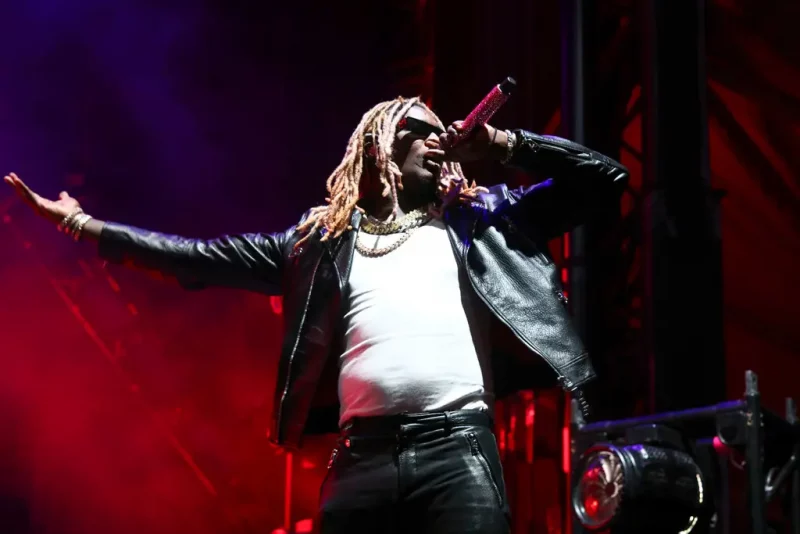California Bill Could Restrict the Use of Rap Lyrics in Court
Share
Explore Our Galleries
Breaking News!
Today's news and culture by Black and other reporters in the Black and mainstream media.
Ways to Support ABHM?
By Livia Albeck-Ripka, New York Time
The bill, which applies more broadly to other forms of creative expression, has unanimously passed the Senate and Assembly and could become law by the end of September.

A California bill that would restrict the use of rap lyrics and other creative works as evidence in criminal proceedings has unanimously passed both the State Senate and Assembly, and could soon be signed into law by Gov. Gavin Newsom.
The bill, introduced in February by Assemblyman Reginald Jones-Sawyer, a Democrat who represents South Los Angeles, comes amid national attention on the practice following the indictment of the Atlanta rappers Young Thug and Gunna on gang-related charges. Prosecutors have drawn on the men’s lyrics in making their case.
The California measure, however, would apply more broadly to any creative works, including other types of music, poetry, film, dance, performance art, visual art and novels.
“What you write could ultimately be used against you, and that could inhibit creative expression,” Mr. Jones-Sawyer said Wednesday in an interview. He noted that the bill ultimately boiled down to a question of First Amendment rights.
“This is America,” he said. “You should be able to have that creativity.”
Mr. Newsom has until Sep. 30 to sign the bill into law. If he neither signs nor vetoes the bill by that date, the measure would automatically become law. The law would then go into effect on Jan. 1, 2023, Mr. Jones-Sawyer said.
Read more about the proposed law.
On the other end of the spectrum, The Smithsonian recently recognized the cultural impact of rap.
Get more Black culture news.











Comments Are Welcome
Note: We moderate submissions in order to create a space for meaningful dialogue, a space where museum visitors – adults and youth –– can exchange informed, thoughtful, and relevant comments that add value to our exhibits.
Racial slurs, personal attacks, obscenity, profanity, and SHOUTING do not meet the above standard. Such comments are posted in the exhibit Hateful Speech. Commercial promotions, impersonations, and incoherent comments likewise fail to meet our goals, so will not be posted. Submissions longer than 120 words will be shortened.
See our full Comments Policy here.